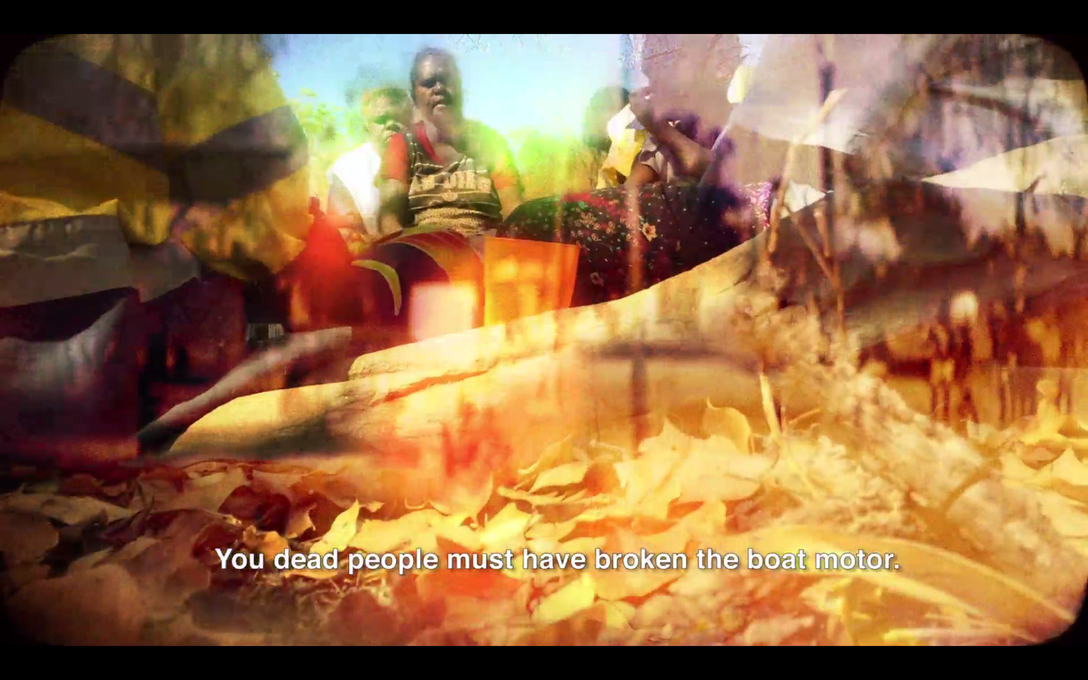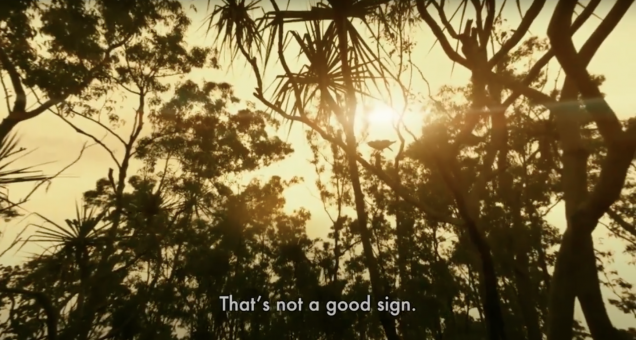Wutharr, Saltwater Dreams

Karrabing Film Collective, Wutharr, Saltwater Dreams, 2016, film still. Courtesy the artists.
archived
10 Jun
–
29 Jun
2024
Karrabing Film Collective
Enjoy is excited to be screening Wutharr, Saltwater Dreams by Karrabing Film Collective.
Awarded the 2015 Visible Award, Wutharr, Saltwater Dreams is based on real events. Across a series of flashbacks, an extended Indigenous family argues about what caused their boat’s motor to break down and leave them stranded out in the bush. As they consider the roles played in the incident by the ancestral presence, the regulatory state and the Christian faith, Wutharr, Saltwater Dreams explores the multiple demands and inescapable vortexes of contemporary indigenous life. The film is the most surreal and near-psychedelic of the Karrabing Film Collective’s productions to date. It explores how the collective’s Indigenous filmmakers experience the containments of missionary-Christian moral codes as well as settler-colonial rule-of-law, and how these layer, displace, but ultimately are absorbed into ancestral territorial arrangements secured in sweat and through generational obligation.

Karrabing Film Collective, Wutharr, Saltwater Dreams, 2016, film still. Courtesy the artists.
Karrabing Film Collective is an Indigenous media group who use filmmaking to interrogate the conditions of inequality for Aboriginal people in the Northern Territory and retain connections to land and their ancestors. Composed of some thirty extended family members whose ancestral lands stretch across saltwaters and inlands and the Italian Alps, Karrabing together create films using an “improvisational realism” that opens a space beyond binaries of the fictional and the documentary, the past and the present.
Meaning “low tide” in the Emmiyengal language, karrabing refers to a form of collectivity outside of government-imposed strictures of clanship or land ownership. Shot on handheld cameras and phones, most of Karrabing’s films dramatise and satirise the daily scenarios and obstacles that collective members face in their various interactions with corporate and state entities. Composing webs of nonlinear narratives that touch on cultural memory, place, and ancestry by freely jumping in time and place, Karrabing exposes and intervenes into the longstanding facets of colonial violence that impact members directly, such as environmental devastation, land restrictions, and economic exploitation.
